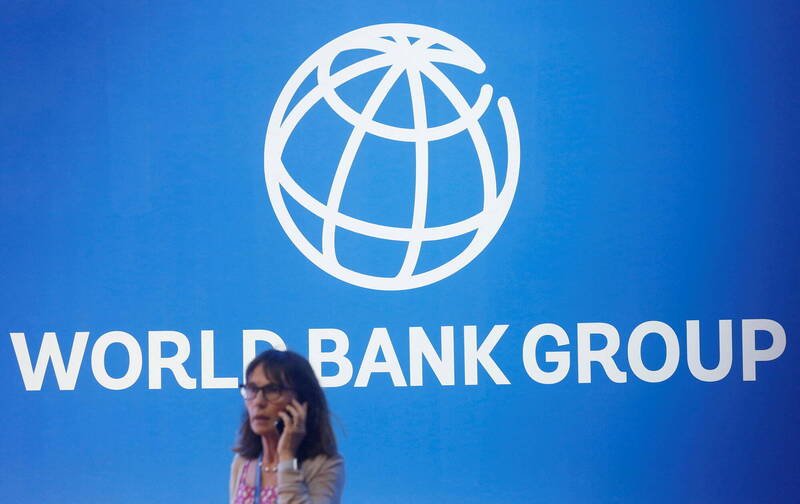The World Bank expects global GDP to grow by 1.7% in 2023, the slowest growth rate since the recessions of 1993, 2009 and 2020.
(Reuters file photo)
[Financial Channel/Comprehensive Report] The World Bank (World Bank) cut its economic growth in 2023 on Tuesday (10th), and many countries fell to the brink of recession. Sustained, and the world's major economic engines stalled.
According to Reuters, the World Bank said it expects global GDP to grow by 1.7% in 2023, the slowest growth rate since the recessions of 1993, 2009 and 2020.
In its previous "Global Economic Prospects" report released in June 2022, the World Bank forecast global economic growth of 3% in 2023.
Please read on...
The World Bank predicts that global economic growth will pick up to 2.7% in 2024, lower than the 2.9% forecast in 2022, and said that the average growth rate between 2022 and 2024 will be less than 2%, which is the lowest five years since 1960. annual growth rate.
The World Bank pointed out that the sharp slowdown in advanced economies and the sharp reduction of forecasts for the United States and the euro zone to 0.5% growth may herald a new global economic recession less than three years after the previous recession.
Given the fragile economic situation, any unfavorable developments, such as higher-than-expected inflation, a sudden rise in interest rates, a resurgence of the pandemic or heightened geopolitical tensions, could push the global economy into recession, the statement said.
The gloomy outlook is particularly difficult for emerging market and developing economies, which are now projecting a two-year outlook for growth as they struggle with heavy debt burdens, weak currencies and income growth and slowing business investment, the World Bank said. China's economy grew at 3.5%, less than half the pace of the past 20 years.
The report pointed out that due to the zero epidemic policy and the turmoil in the real estate market that hit consumption, production and investment, China's economic growth will decline to 2.7% in 2022, which is the second slowest since 2020 and the mid-1970s.
The World Bank forecast a rebound to 4.3% in 2023, but that was 0.9 percentage points lower than last June's forecast due to the severity of disruptions caused by the outbreak and weak external demand.
The World Bank said that as 2022 draws to a close, some inflationary pressures have begun to subside, and energy and commodity prices have fallen, but the World Bank warned that the risk of new supply disruptions is high and the rise in core inflation may persist, adding that this That could lead central banks to respond by raising policy rates more than currently expected, exacerbating the global slowdown.
Grasp the pulse of the economy with one hand I subscribe to Free Finance Youtube channel
Already added friends, thank you
Welcome to 【Free Finance】
feel good
Already liked it, thank you.
related news
